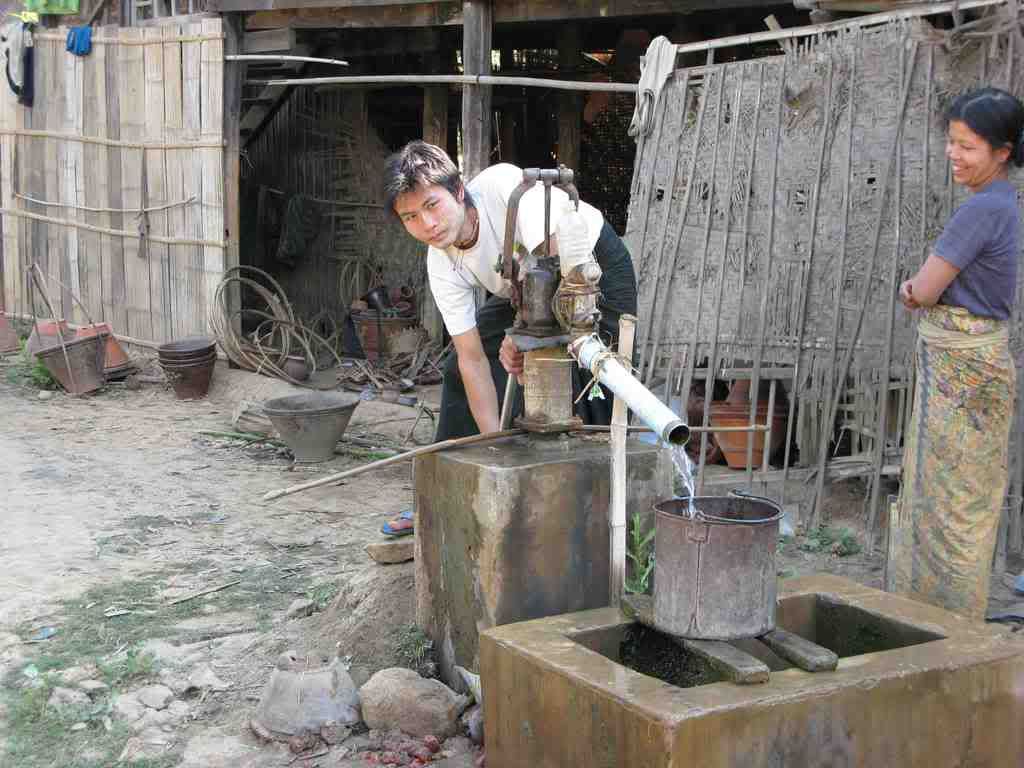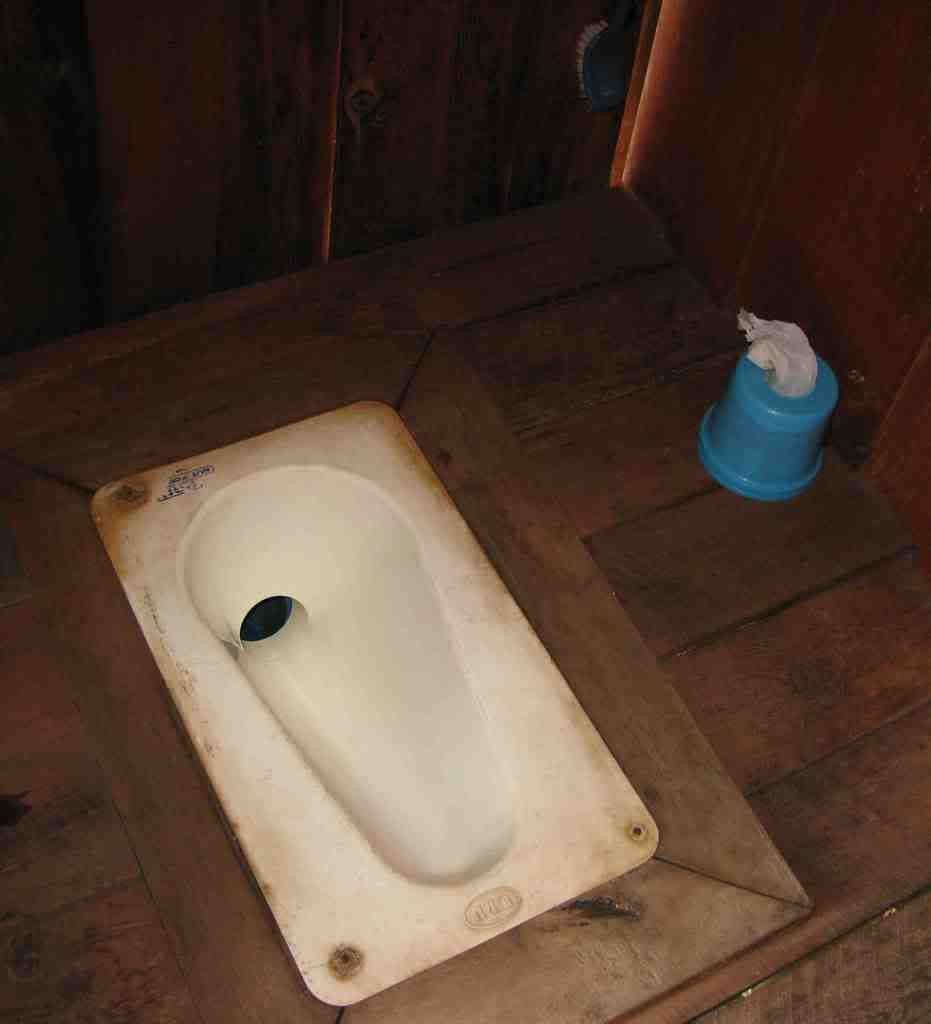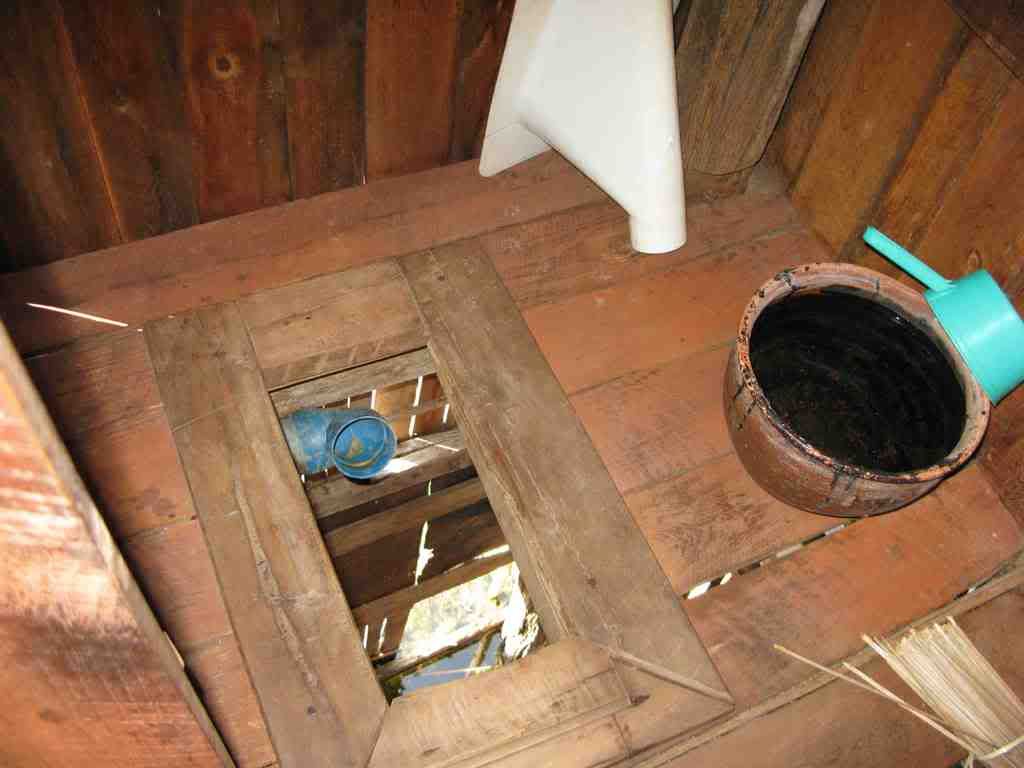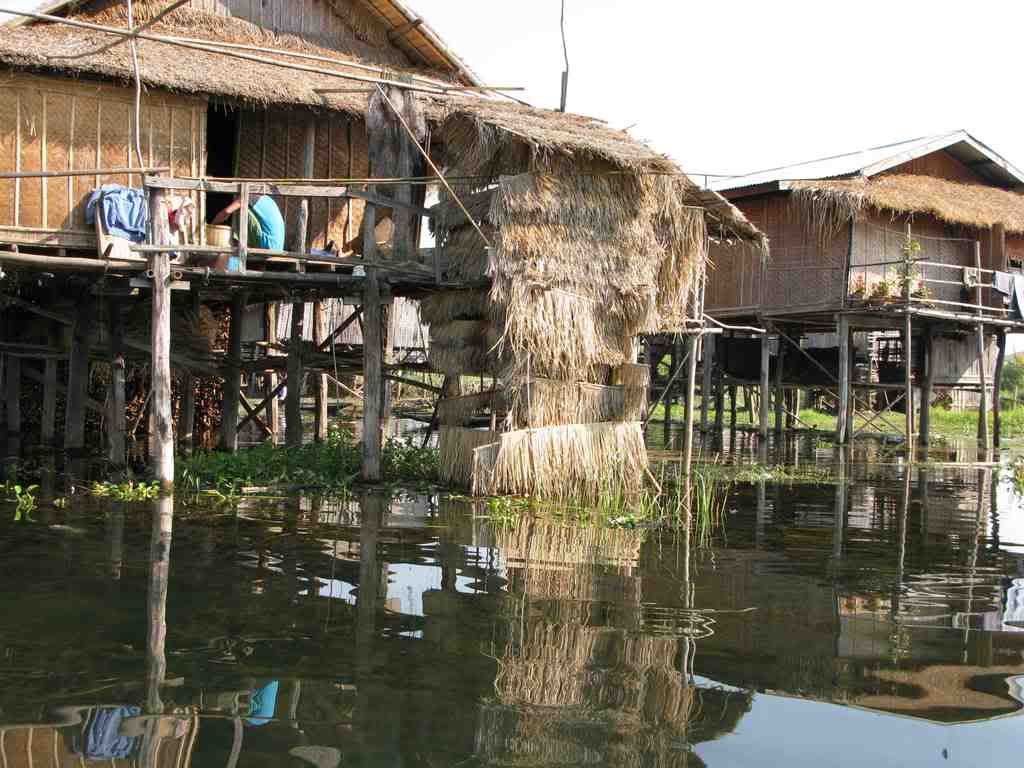
"Sixty-two per cent of Africans do not have access to an improved sanitation facility -- a proper toilet -- which separates human waste from human contact."
But, what is a 'proper toilet'?
When we visited Myanmar (SouthEast Asia) last January, we had a chance to see for ourselves what constitutes a proper toilet for the more fortunate residents of Inle Lake's floating villages.
A typical toilet cubicle (the thatched wall portion) of an Inle Lake floating village home
A typical toilet

Toilet cubicle ready for installation of toilet. Human waste drops directly into Inle Lake.

Why is this important? Because Inle Lake villagers wash their clothes, their cooking utensils and themselves in the lake. They use lake water for their crops; they net shrimp, which are sun-dried and eaten without cooking; they fish for several days at a time, living on their fishing boats and drinking the untreated lake water.
Is it any wonder that cholera is endemic in Myanmar and in many other parts of Asia and Africa? Here are some recent examples of the severity of the situation.
Iraq
According to the WHO, the Iraqi government had reported 341 lab-confirmed cases of cholera – and five deaths from the disease – as of September 28th. The current outbreak, which began in August, had spread to nine provinces in a little over a month. The outbreak has since grown to 417 cases, and one more person has died.
India
As flood waters receded, Vibrio cholerae rushed in to fill the void. The Municipal Corporation of Delhi reported 136 cases of cholera in September. And eleven villages in and around Gujarat have also been hard hit, although no specific numbers have been released.
Pakistan
The Swat region of Pakistan, a mountainous area in the north-west of the country near the border with Afghanistan, has reported at least 600 suspect cases of cholera. Two children in the town of Saidu Sharif have died after being hospitalized with symptoms of the disease. The outbreak began two weeks after insurgents blew up destroyed a pipeline grid station that controlled the flow of potable water to villages in the region.
Hong Kong
The Centre for Health Protection reported Hong Kong's fourth confirmed case of cholera for 2008. A 10-year old tourist became ill before arriving in Hong Kong. He has been hospitalized and is reported to be in stable condition.
Indonesia
The Papua region continues to suffer from a cholera epidemic, which has claimed an estimated 200 lives so far this year. Medecins du Monde, a non-governmental organization, reports having treated at least 800 cases of cholera in remote areas of Papua.
Guinea-Bissau
In spite of the best efforts of the World Health Organization to help contain the outbreak, this African country has been fighting a losing battle against a cholera epidemic that has been on-going since May. As of the end of September, the death toll stood at 141 victims, and 7,777 cases of the disease have been reported.
Nigeria
Cholera has been blamed for 21 deaths in Sokoto State. Zamfara State also has been hit with an outbreak, and is reporting at least 100 illnesses and 18 deaths from cholera.
Congo
A refugee camp is at the center of a cholera outbreak that has sickened at least 300 Congolese, and killed 37 of them. The camps were set up to house people who were fleeing from fighting in the eastern part of the country.
In addition to these examples, cases of cholera – some confirmed, some only suspected – have been reported recently in Kenya (at least 30 cases), Uganda (482 cases, 32 deaths), and Ghana. Zimbabweans are on tenterhooks, waiting for the next outbreak and hoping that it will not materialize.
And knowing that it will.






No comments:
Post a Comment
Note: Only a member of this blog may post a comment.